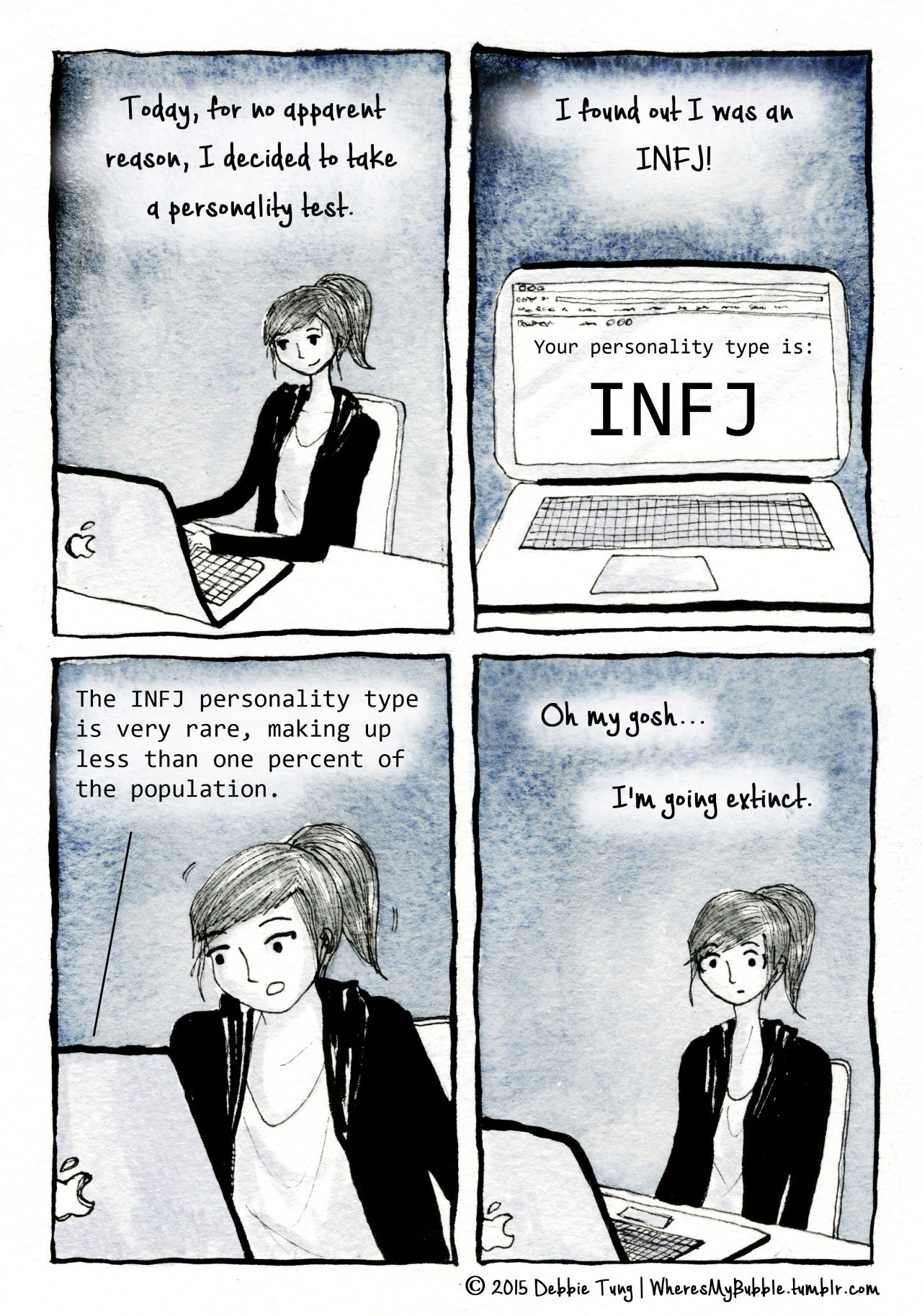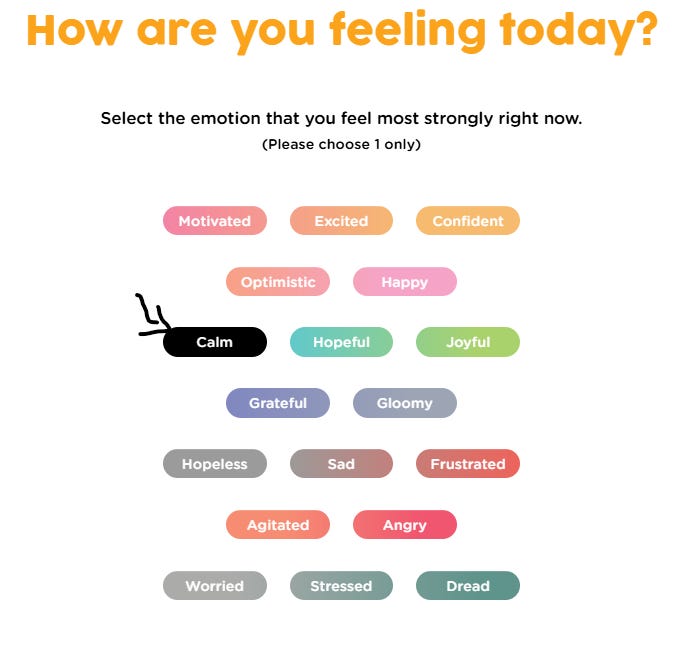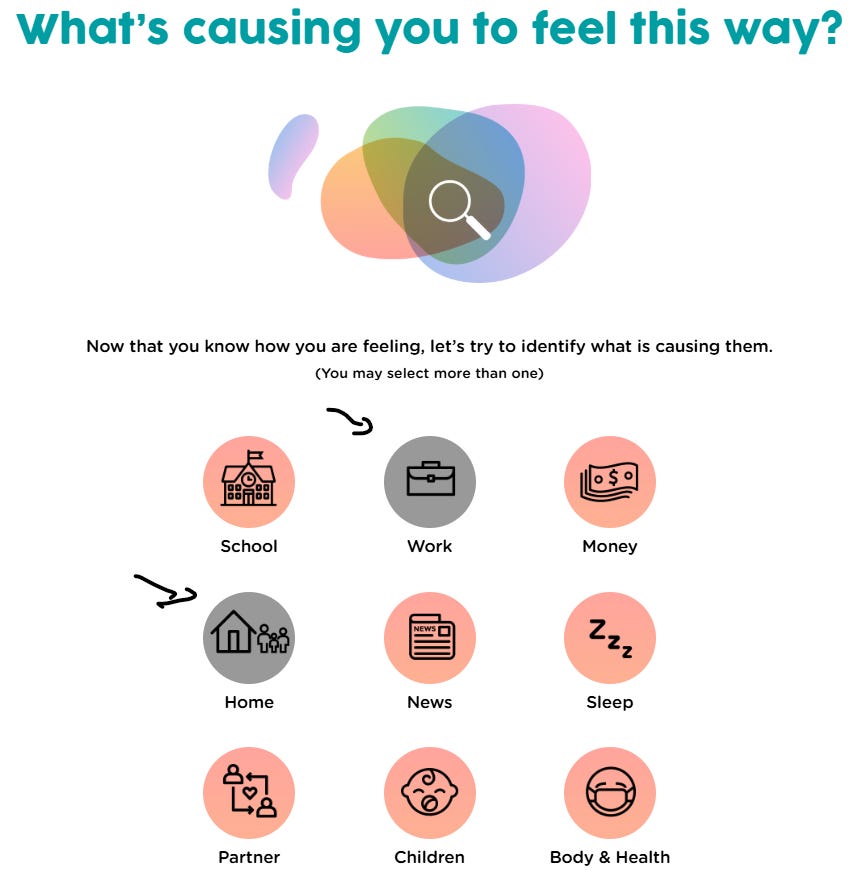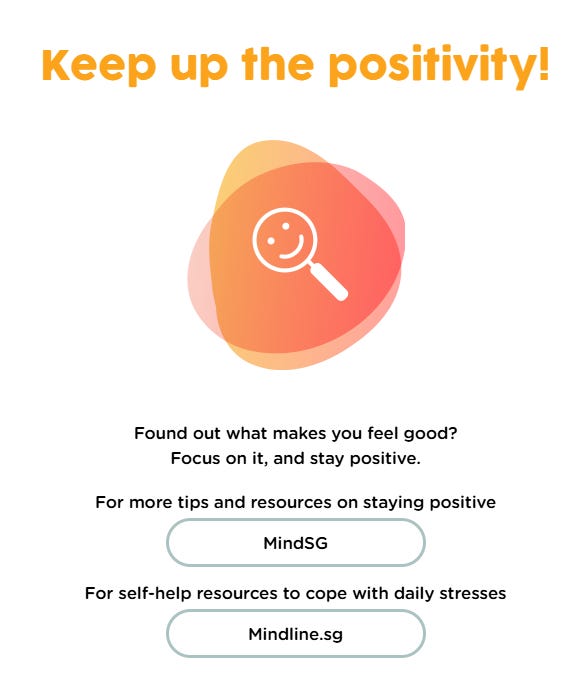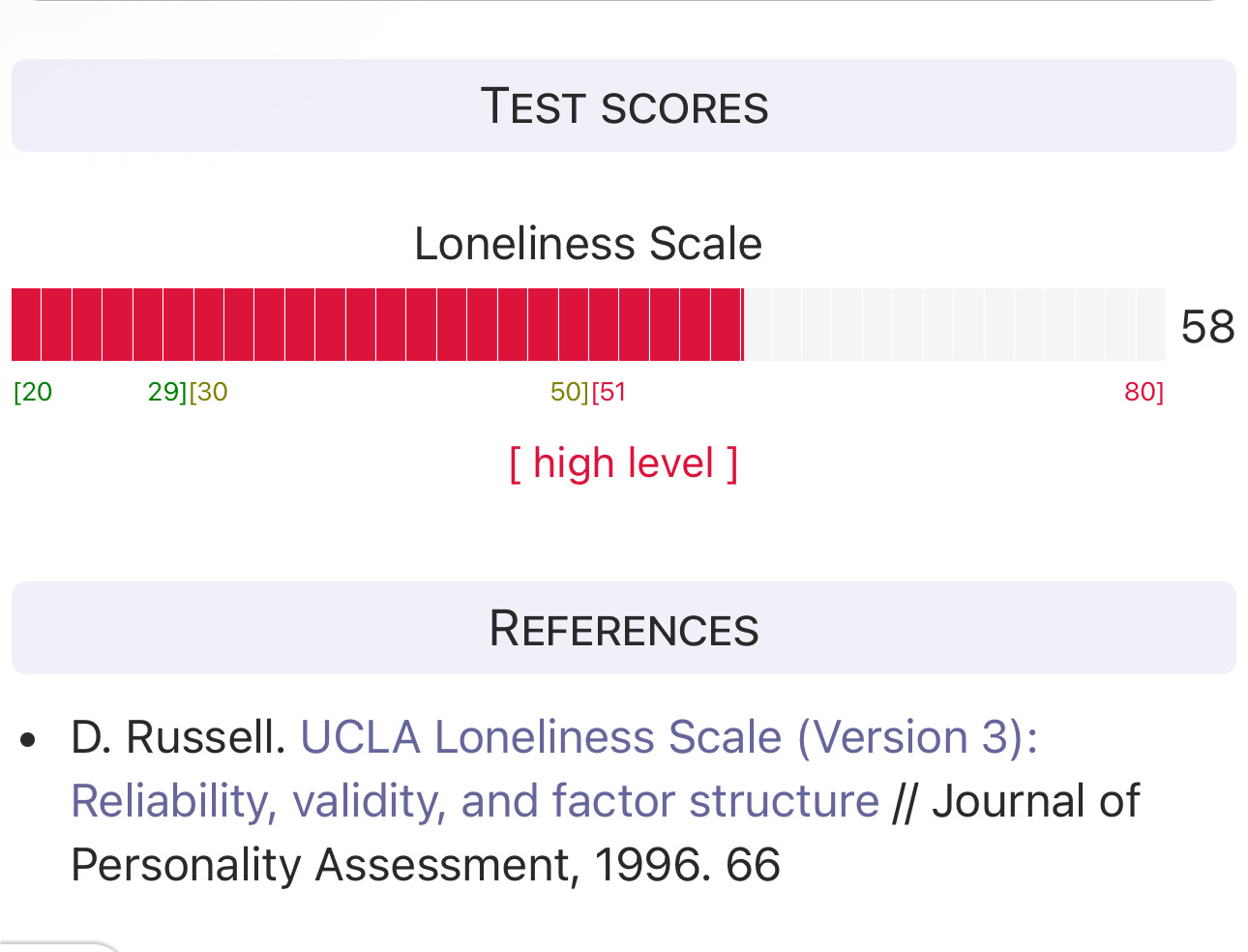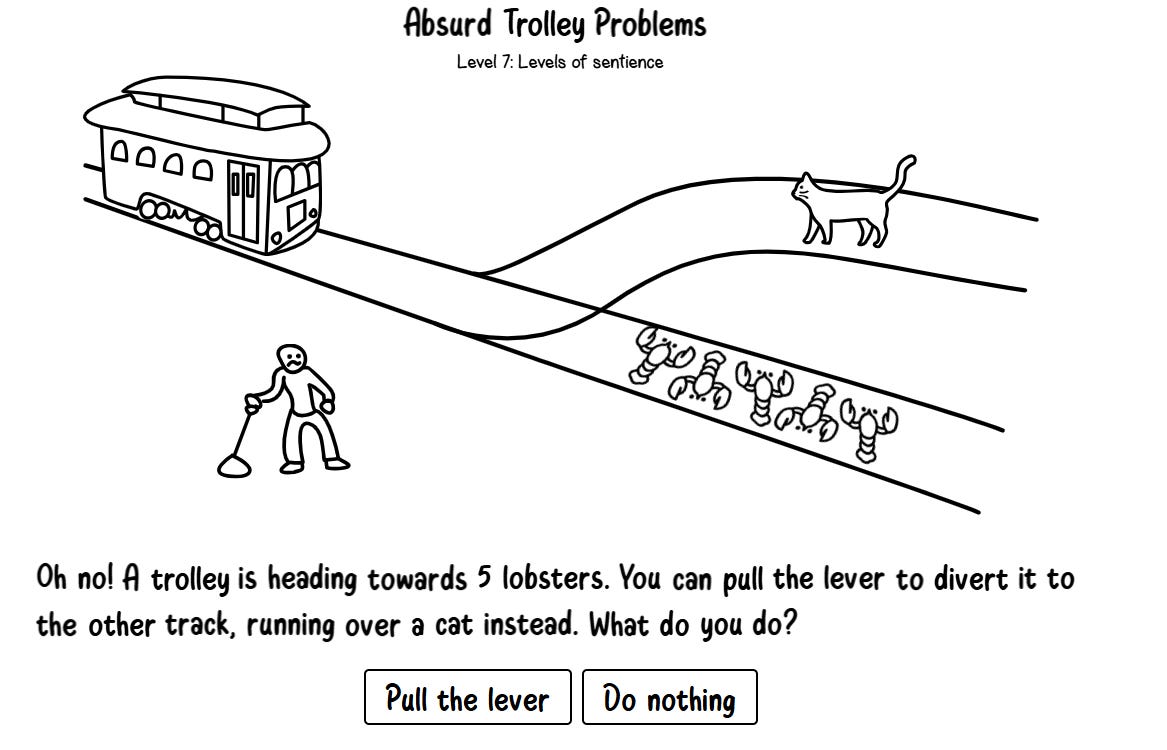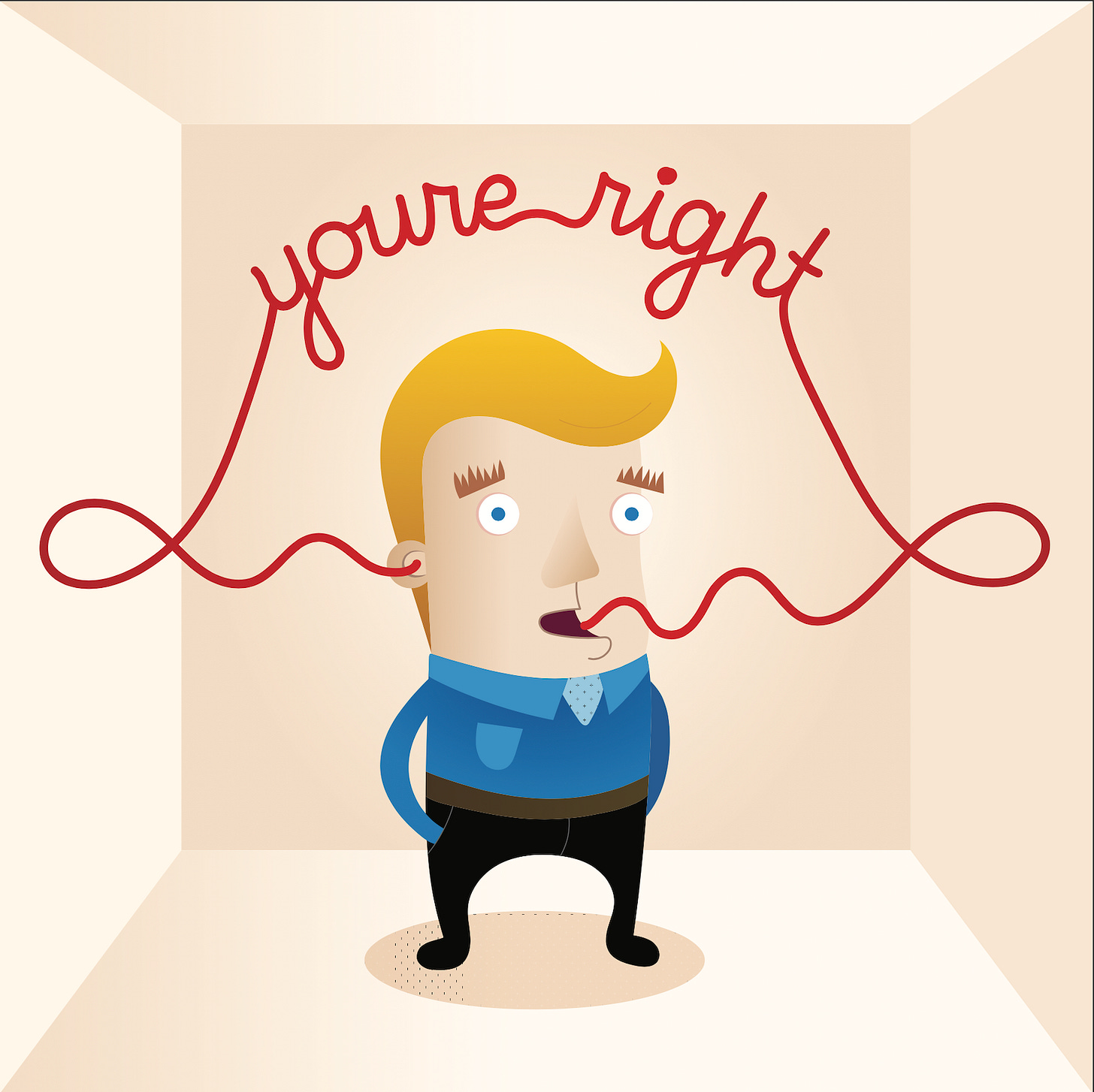Using untapped methods to find out more about yourself
Without doing MBTI/strengthsfinder/VIA etc.
Two basic types of personality tests in general: self-report inventories and projective tests
I’ve tried different personality tests and always found the results very intriguing. Thoughts like, 'Is that really who I am, or is this just an ideal version of me that I hope to become?' or 'Who would be a good match for my identified personality?' inevitably cross my mind whenever I see the results.
How many types of personality tests are you familiar with?How do personality tests work? Personality testing is designed to elicit responses from participants about their behaviors, preferences, emotional responses, interactions, and motivations in order to evaluate personality characteristics and patterns.
There are two basic types of personality tests: self-report inventories and projective tests:
Self-report inventories involve having test-takers read questions and then rate how well the question or statement applies to them.1 One of the most common self-report inventories is the Minnesota Multiphasic Personality Inventory (MMPI).
Projective tests involve presenting the test-taker with a vague scene, object, or scenario and then asking them to give their interpretation of the test item. One well-known example of a projective test is the Rorschach Inkblot Test.
https://www.verywellmind.com/what-is-personality-testing-2795420
There are other methods to find out more about yourself too!
I, on the other hand, am a big fan of tests that explore different aspects of myself. Perhaps you could try some of them too. While I’ll be listing a few examples, I’m not endorsing them, and there may be other tests that serve the purpose better. That said, I do encourage you to give them a try and take some time to reflect upon the results.
1. Your emotional hygiene: https://www.healthhub.sg/programmes/mindsg/emotionsexplorer
Just like you would maintain your physical hygienes, it is good to do so with your emotional hygiene on a daily basis as well. This is the result for me for today:
2. Loneliness Scale: https://psytests.org/ipl/uclav3en-run.html
Loneliness and lack of social support have been identified as suicide risk factors. Therefore, I’m intrinsically motivated to learn more about how they are measured and how they can be addressed.Loneliness is a common human experience. Most of us will feel it somewhat now and again, but ongoing feelings of perceived loneliness can have significant negative effects on a person’s overall health and well-being. Because of the high prevalence and profound potential impact of loneliness, there has long been a need for researchers and clinicians to empirically support tools for measuring how lonely a person feels. One of these measures, the UCLA Loneliness Scale, has been used to quantify degrees of loneliness for nearly half a century.
https://www.betterhelp.com/advice/loneliness/what-does-the-ucla-loneliness-scale-mean-for-my-life/
My result:My loneliness scale is at the high level. The higher a person scores, the lonelier they’re likely to be. For example, someone with a score of 50 is likely to feel much more lonely than someone with a score of 10. Much to reflect about…
3. Interactive games such as Absurd Trolley Problems: https://neal.fun/absurd-trolley-problems/
There are alot of games that placed you in different scenarios and force a response from you. Some games like telltale series push that concept to its extreme by putting you in zombie apocalypse or as batman. However, I love the trolley problem as it used to explore your morality and ethnic. Try the absurd trolley problem for different variations and reflect on your answer: https://neal.fun/absurd-trolley-problems/
A human influencer tried it:
A.I. made their choices too:
One particular test that I think is vastly underexplored: Your social media
Do the following step:
1. Open your most commonly used social media
2. Look at the content that automatically pop up in your account. (for Facebook, it could be videos, for instagram, it could be your search button etc)
What are those contents and what do they suggest about your interest and views?The echo chamber effect: How algorithms shape our worldview
Imagine a world where your beliefs and opinions are endlessly reinforced, where your perspective is never challenged, and alternative viewpoints are virtually non-existent. In the media world, we call this the echo chamber. This digital bubble, driven by algorithms and personalisation, reinforces our existing viewpoints and filters through the lenses of confirmation bias. And it is not just a matter of personal choice; it has profound implications for how we perceive the world and engage in online discourse. Confirmation bias, deeply ingrained in human psychology, is the inclination to seek, interpret, and remember information that aligns with our existing beliefs. It's more like our brain's default setting, and it's what makes social media platforms so addictive. Simply put, today’s platforms thrive by delivering content that reinforces our preconceived notions, keeping us engaged and generating revenue off of our views and engagement. Based on what we like, retweet, share, and repost, we’re feeding the algorithm inputs to give us a continuous stream of content that aligns with our views—forming a digital cocoon that isolates us from alternative perspectives.
https://www.campaignasia.com/article/the-echo-chamber-effect-how-algorithms-shape-our-worldview/491762


